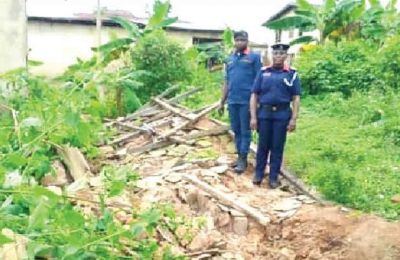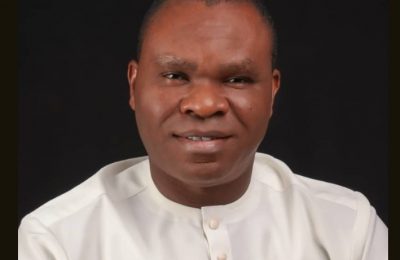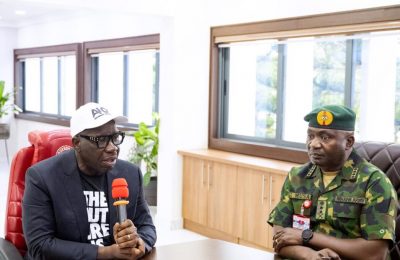If there is any issue that unites most Nigerians at the moment, it is the need to restructure the country. In recognition of the importance of this, the three leading presidential candidates; Bola Tinubu of the All Progressives Congress, Atiku Abubakar of the Peoples Democratic Party and Peter Obi of the Labour Party have at different times spoken of their interest in restructuring the country. But will any of them who emerges as the winner of the February 25 presidential election be ready to restructure Nigeria? That is a trillion naira question.
Before the military putsch of January 15, 1966, Nigeria ran as a true federal state. The regions were strong and took full responsibility for determining their destinies. Each region developed at its pace; each was responsible for generating its own resources, merely paying taxes to the centre. No region waited on Lagos, then the Federal Capital, for monthly handouts; none called on the Federal Government to fix any road, furnish any school or equip any hospital. The regions were responsible for determining their own affairs and, by so doing, contributed to strengthening the centre.
But the coming of Major-General JTU Aguiyi-Ironsi as the Head of State put paid to that. Aguiyi-Ironsi, who took over a fragmented country after the coup d’état of January 15, 1966, thought that concentrating powers in the centre would facilitate unity and enhance cooperation among the ethnic groups. So, he came up, on May 24, with the Unification Decree 34 of 1966. The Decree abolished the federal structure of the country and concentrated powers at the centre. With the promulgation of the Decree, the regions, and subsequently the states, were deprived of right to minerals in their states; the Federal Government became the custodian of the country’s treasures and resources.

Although Colonel Yakubu Gowon, who took over from Aguiyi-Ironsi after the July 29 coup of 1966, abrogated Decree 34 and promulgated Decree 59 of 1966, which came into effect on September 1, and returned Nigeria to its federal status, the truth is that nothing really changed. The government at the centre continued to appropriate to itself powers meant for the states. Since then, there has been agitation for the return of the federation’s pre-January 1966 original structure.
When the country returned to democratic government in 1979, the same pattern continued, the unitary-like federal structure bequeathed to the country by the military was sustained by the political class. Even now, the model is still in place.
But the mightiness of the Federal Government has enfeebled the states and enervated the local councils. Since the abrogation of the nation’s federal structure in 1966, development in the country has been very slow, especially at the state and local council levels because the Federal Government is so powerful that it is involved in primary education as well as primary health care. The power of the federal government is such that it maintains rural roads and is saddled with water provision.

This is why there has been so much agitation for the restructuring of Nigeria.

But wait a minute. What does it mean to restructure Nigeria?
The current arrangement confers on the federal government absolute control over the following: accounts of the government of the federation, army, navy, air force, police, arms, ammunition, explosives, aviation, commercial and industrial monopolies, construction and maintenance of federal trunk roads, creation of states, currency, customs and excise duties, defence; election to offices of president and vice-president, governor, or deputy governor, export duties, external affairs, extradition, immigration and emigration, implementation of treaties, labour, maritime shipping and navigation, mines and minerals, nuclear energy, passports and visas, quarantine, regulation of political parties, traffic on federal trunk roads, and water from sources declared by the National Assembly to affect more than one state, among others.
What this means is that whoever heads the Nigerian federal government wields enormous powers and has control over virtually every aspect of our life as a nation. So, to restructure is to disrobe the president of the enormous powers that the office betroths to him.
To restructure the country is to say the President has no control over the police; it is to deprive the President the power to award road contracts outside of the Federal Capital Territory (FCT). Getting a sitting President to agree to these is herculean.
Human beings love power and very few of them will readily give up powers legitimately acquired. That is why Chief Olusegun Obasanjo did not venture into restructuring the country despite being in charge for eight years. That is why those who came after him, including the incumbent, also looked away from restructuring. It will be a forlorn hope to expect whoever succeeds President Muhammadu Buhari to give up the powers the constitution confers on him.
The only person in modern history who restructured his country and gave up his powers was the late Mikhail Gorbachev, who, as President of the Soviet Union, enacted policies of glasnost (openness) and perestroika (restructuring). The policies eventually led to the collapse of the Soviet Union between 1990 and 1991. The collapse led to the emergence of strong countries in Eastern Europe but at a great cost to Gorbachev because he lost his preeminence as the president of the USSR.
To expect Atiku, Tinubu or Obi to have the Gorbachev-like mindset is to ask for too much. Therefore, the best way to get the country restructured is to do it piecemeal. If we are expecting a holistic restructuring, I am afraid that may never happen.
So, we need to change our strategy. Let us ask Buhari’s successor to restructure the country a bit at a time. We may look at the education system, for instance, and agitate that the federal government should hands off primary and secondary education so that the state and local governments can take care of that. We can also look at the road network and agitate for the handing over of all roads to the state and local governments. Then, we can look at natural resources and move for the federal government to hands off them. It is easy to secure the states’ agreement on these three. If we start with these three and the benefits become obvious to all, it would not be difficult to add more to the list. By the time we take these issues one after the other, we would eventually arrive at having a restructured country.
The best way to eat an elephant is to take a bit at a time.








